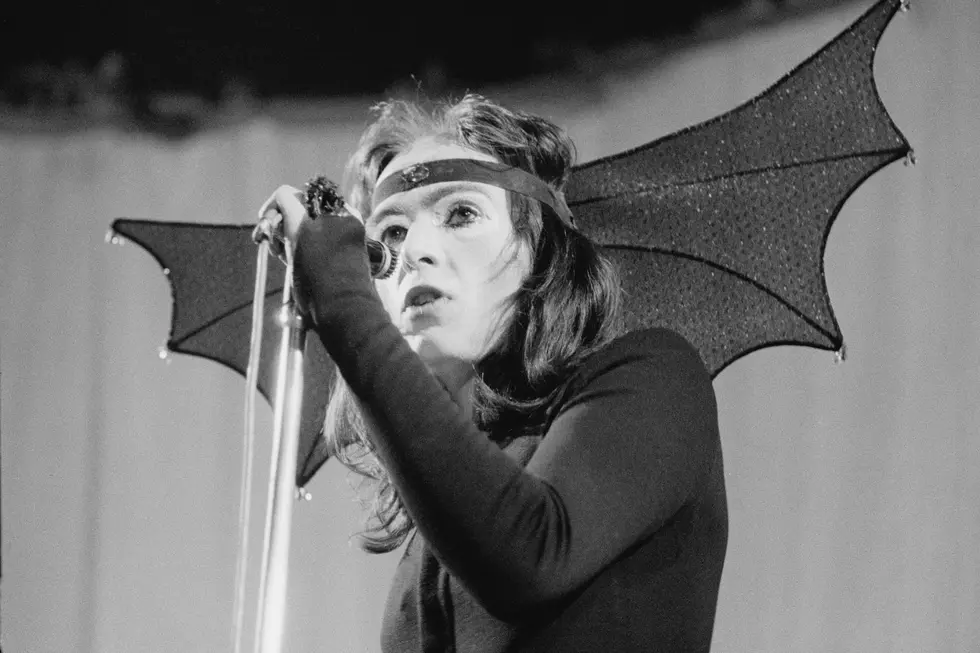
Steve Hackett Recalls Genesis Buying King Crimson’s Mellotron
Before Robert Fripp famously dissolved King Crimson in 1974, temporarily leaving the industry altogether to pursue a more spiritual path, he proposed an intriguing plan for the prog-rock band to carry on without him.
The idea, detailed during a 50th anniversary press conference in 2019, was to officially bring back former woodwind player Ian McDonald (who appeared as a guest on Red) and hand-select a replacement guitarist — with Steve Hackett, a member of Genesis since 1971, as his first choice. Alas, that reconfigured lineup never got off the ground, with management reportedly saying, “We’re not interested in King Crimson without Robert.”
And as Hackett tells UCR's Matt Wardlaw — in an interview promoting his new album, Surrender of Silence, out Sept. 10 — he was oblivious to that proposition back in the '70s.
"I had absolutely no awareness of that at the time," he says. "[Fripp] and I knew each other and spent time together. I had, you know, nothing but admiration for the way he basically led that band. At a time when most bands were doing material that was blues-based, this was much more organized."
Hackett became an immediate fan of that seminal prog act, particularly how they created a cohesive sound out of so many "disparate" styles — "from jazz to classical to [an] almost Ecclesiastical [effect]" — and "put it all together at a time when psychedelia was reigning supreme."
The band's early work, he says, "really came out of left field" — and became a major influence on Genesis during their early evolution.
"Hell, we bought our first Mellotron off them because they had spares!" he says, vividly recalling the purchase. "[T]hat was meeting Robert for the first time. [Genesis keyboardist] Tony Banks and I went down to a place where they were rehearsing in the bowels of the Earth, below this cafe. It was a very dark and dank place. You wouldn’t imagine that such colorful music came out of such a humble place. But nonetheless, it served its purpose."
"We as Genesis, were the poor cousins at that point," he adds. "We had a King Crimson hand-me-down. But there we are — it was certainly worth it. In the wake of the Beatles, of course, the MK II Mellotron, had a lot to answer for."
And adding that piece of gear to their arsenal, he says, "really helped Genesis a lot."
"I was very keen on Genesis expanding the keyboard arsenal as much as possible," he notes, "so that we had a big wide range of sounds to put across the stories of what we now call 'progressive rock.'"
Top 50 Progressive Rock Albums
More From Classic Rock 105.1










